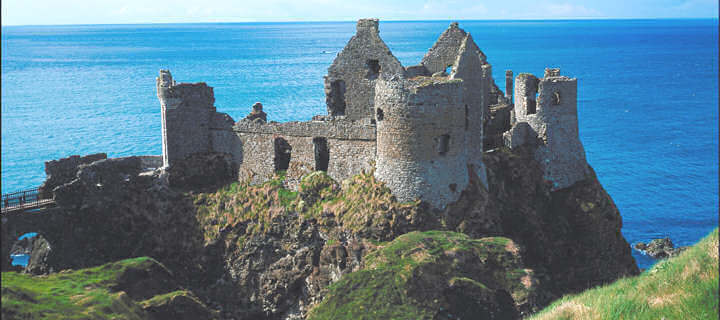Casinos provide entertainment for many players around the United Kingdom. A survey recently found that 3 out of 4 adults have engaged in some form of gambling in Northern Ireland. It was also found that 67% of the Northern Ireland residents did not favour gambling while 24% favoured gambling. It is said that Northern Ireland Gambling laws are currently under review. It is important that players know the laws and legislation about gambling in their region.
Online Casino Laws in Northern Ireland
Online gamblers in Northern Ireland need to know the gambling laws that govern online gambling in Northern Island and the rest of the United Kingdom. According to the 2005 Gambling Act in the United Kingdom, an online gambling service provider needs to be licenced by a reputable jurisdiction. Online casinos that wish to cater for UK players needs to obtain a licence from the UK Gambling Commission.
This means that players in Northern Ireland can gamble at online casinos, it is however, in their best interest to play at licenced and registered online casinos. This will protect players from fraudulent activities and also protect their rights as players.
Players should look out for online casinos that are licenced by jurisdictions such as the Malta Gambling Authority and the UK Gambling Commission among others.
Online gambling services that are not licenced, are not allowed to advertise their services on any form of British media.
Land Based Casinos in Northern Ireland
There are currently no casinos in Northern Ireland due to the legislation made in 1985 that deemed gambling in Northern Ireland illegal. Due to this law, there are currently no land-based casinos in Northern Ireland. It is said that The Rank Group made a proposal to build Irelands first ever casino. This also comes at a time when there are talks about reviewing the gambling laws in Northern Ireland as they are believed to be outdated.
Players residing in Northern Ireland need to know that any form of gambling such as Bingo games, card game and other sorts of gambling are currently illegal in Northern Ireland. Although it is said that the laws are currently under review, the laws banning gambling still stand.
Players residing in Northern Ireland who wish to gamble should travel to other parts of the United Kingdom if they want to gamble legally.
The Rank Group made a proposal to build a land-based casino in Norther Ireland worth £18m. They revealed their plan to build a casino with a theatre, bowling lanes, restaurants, bars and an art house cinema. These plans have been, however, not yet approved.
Land Based Casino Laws in Northern Ireland
As mentioned in the beginning, there are no land-based casinos in Northern Ireland as the current law prohibits gambling. Because of this law, there have been no casinos in Northern Ireland as yet. Talks about reviewing these outdated laws are currently underway. In the meantime, players can travel to other regions
People residing in Northern Ireland can also make use of online casinos while the strict laws have not yet been reviewed.
Frequently Asked Queens in Northern Ireland
Is it illegal to play at Land-Based Casino in Northern Ireland?
Yes, it is illegal to engage in any gambling activity while residing in Northern Ireland. As a result, there are no casinos in Northern Ireland. These laws are currently under review, however, as it stands, these laws are still enforced in Northern Ireland.
Can I Play at an Online Casino in Northern Ireland?
While it is illegal to gamble in Northern Ireland, players can play at online casinos that are licenced. Players can access their favourite casino games such as online slots, Blackjack and Roulette among a number of other entertaining casino games.
Are Online Casinos Safe?
Yes, online casinos are safe, however, players should make sure that the online casino they choose is licenced and regulated by a reputable jurisdiction. This will protect the player against any fraudulent activity. If you play at an online casino that is not registered and licenced, you cannot be protected from fraud or any unfair practices.








